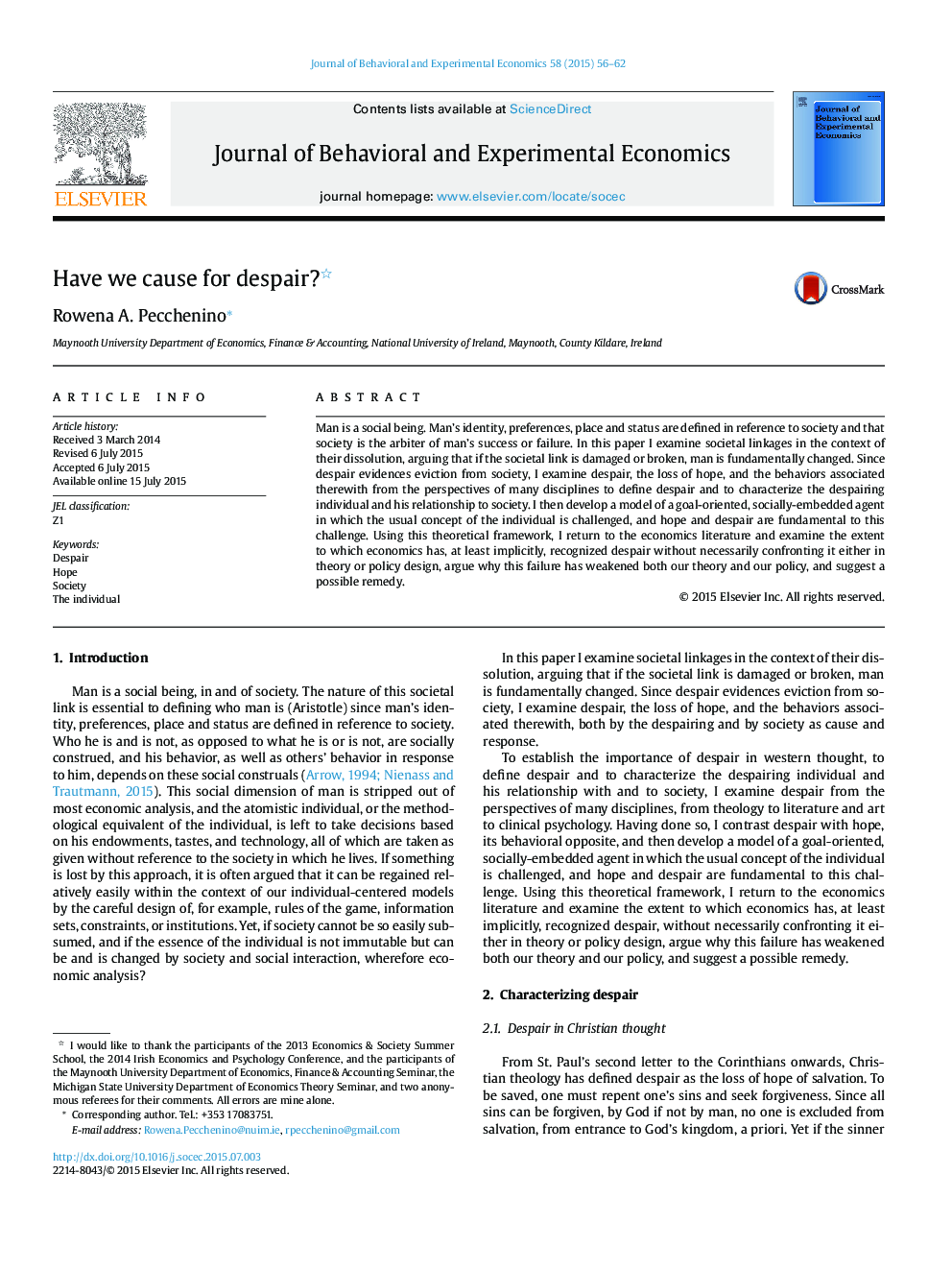| Article ID | Journal | Published Year | Pages | File Type |
|---|---|---|---|---|
| 881920 | Journal of Behavioral and Experimental Economics | 2015 | 7 Pages |
•Man is a social being and society is the arbiter of man's success or failure.•If the societal link is altered man is fundamentally changed.•Despair is defined and the despairing individual and his relationship to society characterized.•A model of a goal-oriented, socially-embedded agent is developed.•Failure to recognize despair has weakened both our theory and our policy. A remedy is suggested.
Man is a social being. Man's identity, preferences, place and status are defined in reference to society and that society is the arbiter of man's success or failure. In this paper I examine societal linkages in the context of their dissolution, arguing that if the societal link is damaged or broken, man is fundamentally changed. Since despair evidences eviction from society, I examine despair, the loss of hope, and the behaviors associated therewith from the perspectives of many disciplines to define despair and to characterize the despairing individual and his relationship to society. I then develop a model of a goal-oriented, socially-embedded agent in which the usual concept of the individual is challenged, and hope and despair are fundamental to this challenge. Using this theoretical framework, I return to the economics literature and examine the extent to which economics has, at least implicitly, recognized despair without necessarily confronting it either in theory or policy design, argue why this failure has weakened both our theory and our policy, and suggest a possible remedy.
